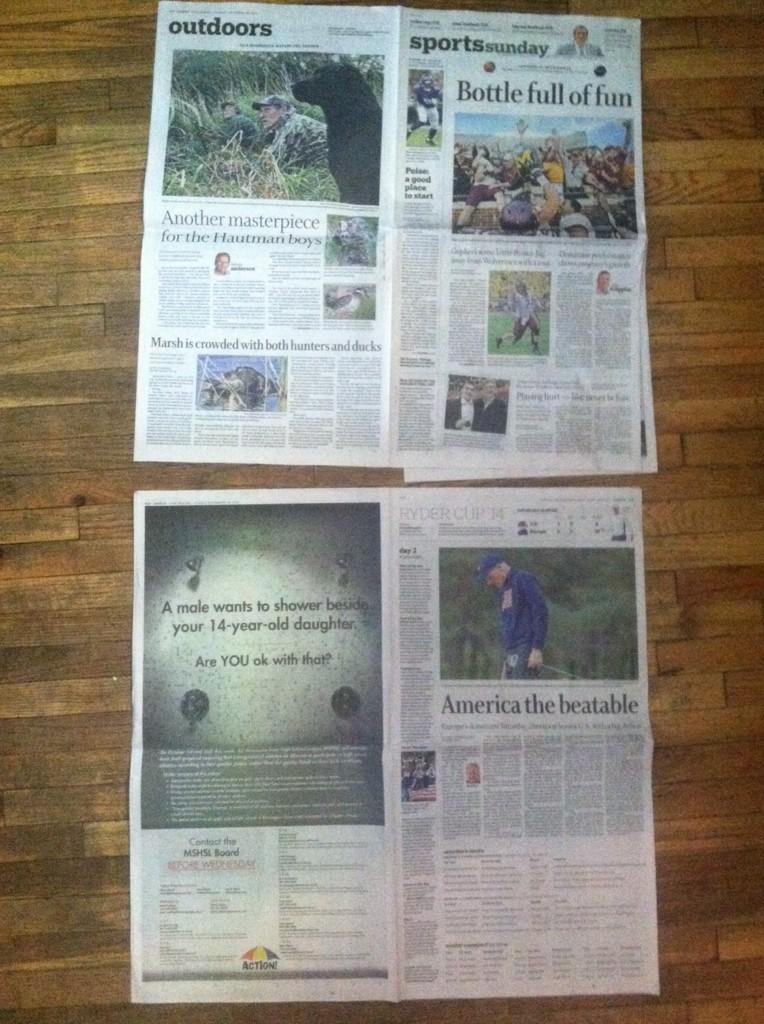In the last two weeks, I have received a half dozen requests for advice from newish writers looking to expand their readership or break into more formal publication. They all ask me roughly the same questions - how did you do it? Does blogging help?
Unfortunately to those seeking my advice, the true answer is that
I have nothing useful to tell you.
I have no advice on how to break in, how to get your word out there, whether blogging helps, whether you need a twitter account, whether instagram is better than pinterest, whether Facebook is dead, how to pitch, how to get paid, how to get noticed, how to get on TV, how to get published, how to make a living, or how to not die as a writer.
I stumbled into writing, driven by irrational overconfidence typical to my set that my opinions would matter, first placing a few op-eds, exploiting the randomness of a global event relevant to my medieval expertise, then starting this blog.
Did blogging help? Has it worked to make me a more successful writer? More importantly, will it help you?
I have no idea.
My only advice for aspiring writers is this - if you blog,
make sure the blogging itself sustains you even if no one is listening. Make sure that when you blog, you are writing things that you want to write, that you want to get better at writing, so that the iterative process of homing in on your core arguments makes you better at them. The blogging must satisfy you because surely, you will write brilliant essays that you love, and but 25 people will read it, or 10, or 5, or no one.
If the writing feeds you, sharpens you, gets you ready to say the things you want to say more effectively, then blog. If you find yourself writing only to get readers or make money of advertisements, well, I have no objection to commercializing your prose, I wish I were better at it, but you're doing something very different than I (I have a great day job; I have privilege) and I can't tell you whether blogging is a good idea.
So for writers, I have no real advice.
But for you, dear reader, I do have some advice. Share Good Work.Every RT, every Facebook share, every email - these things make all the difference to writers, especially small timers like me, and even more to people just starting out. If you read something you like, share it.
I get around 100 views per post. That's nothing in the world of social media. But when about 10 people RT or share on Facebook, I get around 200 readers. Double! You have a huge impact for a writer like me.
Now think about the blog that has only a few dozen readers and the kind of impact you can have? The blogs of these fascinating people seeking me out for advice sound wonderful, but to grow they'll need readers who share.
There's a problem in charitable giving in which people are too ready to give to the big ticket players. Big donors like to give to Harvard, but a fraction of the money at a smaller school would transform lives. Big donors like to give to the mega museums or even, dare I say, symphonies (my sister is the concertmaster of the Omaha symphony. Everyone should give it money!) - rather than to smaller arts institutions. Whereas a few thousand dollars might save a small institution or endow a scholarship, such money just vanishes into the vast pool at the huge place. There's no impact for the small or medium donor, but still they give.
I see some of the same forces at work with media. Think of whatever giants in the blogging world that you like, people with tens of thousands of readers a day. They probably write good stuff and it's good to RT good work, but spreading the word of a blog so that a piece gets 10,020 readers instead of 10,000 isn't such a big deal. But raise a post from 200 to 220, well, that's significant.
Sharing, of course, is not like giving money. You could share 20 posts just as easily as you could 1. But my sense is that most people don't. Most people don't want to spam their friends with lots of links in a given day, but maybe just post one or two to Facebook, maybe tweet something every hour. People treat sharing as something they have to budget - and they probably do. Think about spending some of that budget by sharing someone just starting, someone just finding their voice.
Comment, too, if you can. Most new writers (me for sure) love comments, even just a "great piece!" Let us know you at least scrolled to the end.
What I'm saying is this - if you read a post you like, seriously consider sharing it.
Share from the least visible up. I think about the voices of women, people of color, the disabled, or writers who are LGBTQ. Share the people who amplify such voices (that's what I try to do). Share people with fewer readers instead of those with more.
But mostly, just share.
And then maybe I can tell writers that yes, blogging is a good use of their time.

